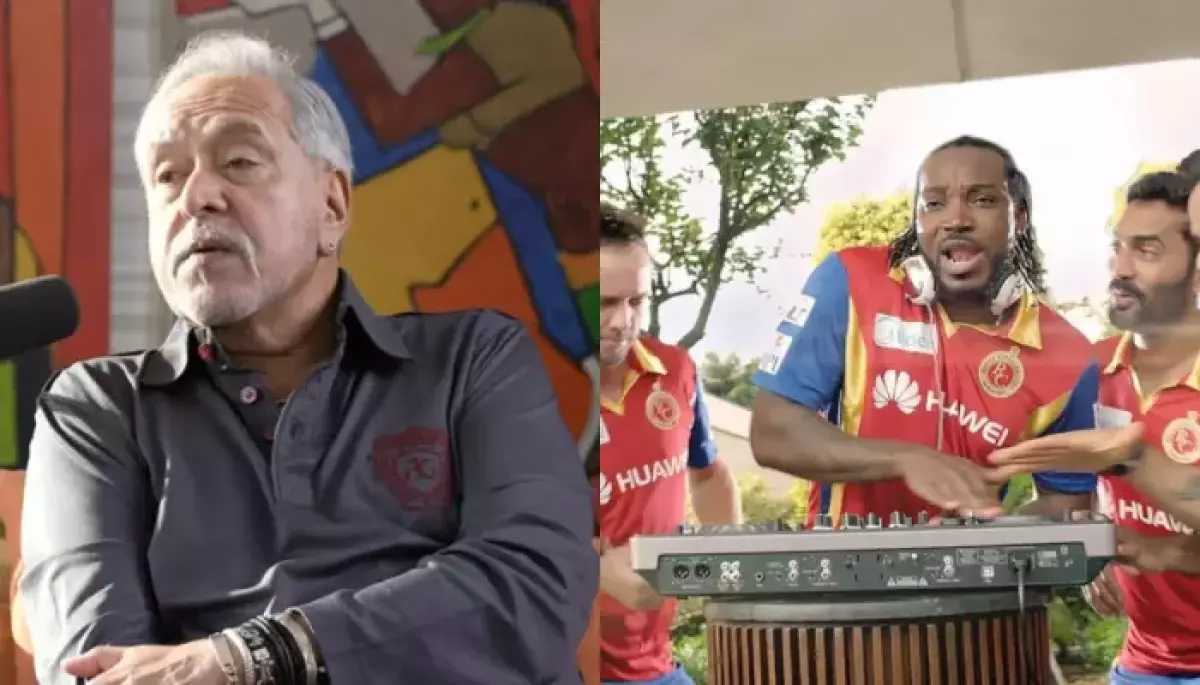Vijay Mallya Unveils the Story Behind ‘Oo La La La Le O’ Kingfisher Jingle
Background Context
Vijay Mallya, the controversial former chairman of United Breweries Group and founder of the now-defunct Kingfisher Airlines, made headlines on June 5, 2025, during a podcast with YouTuber Raj Shamani. Known for his flamboyant lifestyle and business ventures like Royal Challengers Bengaluru (RCB) and Force India F1, Mallya shared the origin story of the iconic Kingfisher jingle, “Oo La La La Le O.” The catchy tune, synonymous with the Kingfisher brand in the 90s, became a nostalgic anthem for Indian millennials. Mallya’s revelation, tied to his sponsorship of the West Indies cricket team in 1996, has gone viral, sparking nostalgia and social media buzz. Despite his fugitive status in the UK, facing extradition for financial fraud allegations, Mallya’s podcast appearance has reignited interest in his larger-than-life persona.
The Birth of ‘Oo La La La Le O’
In a four-hour podcast with Raj Shamani, titled Figuring Out, Vijay Mallya recounted how the iconic Kingfisher jingle “Oo La La La Le O” was conceived. The jingle, featured in Kingfisher beer and airline ads, became a cultural phenomenon, hummed by 90s kids across India. Mallya revealed that the inspiration came from his sponsorship of the West Indies cricket team in 1996:
“You remember, ‘Ooh la la la le le oh’? When was this conceived? Let me tell you. Back in 1996, I put the Kingfisher logo on the West Indies cricket team, okay? And why? Because of the personalities of the West Indian cricketers—fun, dancing, music—their entire swagger suited the Kingfisher brand. That’s when the jingle was conceived, and it lives on till today. Wow.”
The jingle captured the vibrant, carefree spirit of the Caribbean, aligning perfectly with Kingfisher’s “King of Good Times” ethos. A snippet of the podcast, shared on Instagram by Figuring Out with Raj Shamani, went viral, with fans flooding X with nostalgic reactions. One user posted, “Amazing story behind OO LA LA LA LE OO jingle by Vijay Mallya. #Kingfisher #RCB” (@TradeNinvesting). Another reminisced, “This jingle was my childhood! Mallya’s still got that charm” (@90sKidVibes).
Context of the Jingle’s Creation
In 1996, Mallya, then at the peak of his business empire, sponsored the West Indies cricket team, leveraging their lively, charismatic image to boost Kingfisher’s brand. The jingle, with its Calypso-inspired rhythm, was crafted to reflect this energy, becoming a staple in Kingfisher’s TV and radio ads. Mallya’s vision was to blend fun and aspiration, a strategy that extended to his ventures like RCB, where he handpicked a young Virat Kohli in 2008, and Force India, named to showcase India’s flag globally.
Social Media Buzz and Nostalgia
The podcast clip triggered a wave of nostalgia on X, with users sharing memories of singing the jingle as kids. Posts praised Mallya’s marketing genius, with one stating, “Say what you want about Mallya, but that jingle was a masterstroke” (@BollyBuzz). However, some criticized his reappearance, citing his fugitive status: “Great story, but why’s he still not back in India?” (@TruthSeekerX). The jingle’s enduring appeal was evident, as fans recalled its use in Kingfisher’s glamorous ads and even linked it to the brand’s cultural impact, like the Kingfisher Calendar.
Mallya’s Larger Narrative
Mallya, now 69, remains a polarizing figure. Once dubbed the “King of Good Times,” he fled India in 2016 amid allegations of defrauding banks for ₹9,000 crore tied to Kingfisher Airlines’ collapse. Living in the UK, he lost his final extradition appeal in 2020 but continues to resist return, reportedly seeking asylum. In the podcast, he also discussed RCB’s 2025 IPL win, expressing pride in selecting Virat Kohli, and his Force India F1 venture, emphasizing national pride over personal branding. His candid reflections, including on the jingle, highlight his knack for storytelling, even as legal battles loom.
Why the ‘Oo La La La’ Story Resonates
- Nostalgic Appeal: The jingle evokes 90s memories, connecting with millennials who grew up with Kingfisher’s vibrant ads.
- Marketing Genius: Mallya’s ability to tie the jingle to the West Indies’ swagger showcases his branding prowess.
- Cultural Impact: The tune became synonymous with Kingfisher’s “good times” identity, influencing Indian pop culture.
- Mallya’s Comeback: His podcast appearance, despite controversies, keeps him relevant, sparking debates on X.
Suggested Authoritative Sources
- Times Now: Detailed coverage of Mallya’s podcast and jingle story.
- Hindustan Times: Context on Mallya’s legal battles and public persona.
- The Indian Express: Historical reference to the jingle’s Calypso roots.
- Free Press Journal: Insights into Mallya’s RCB and Force India ventures.
- Financial Express: Background on Mallya’s business empire and controversies.
